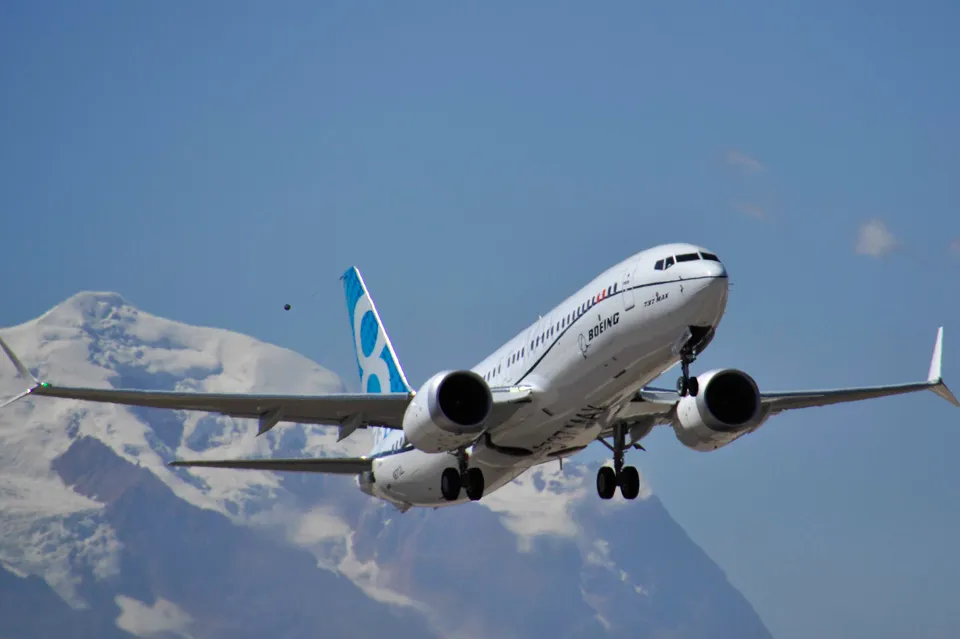
Boeing 737 MAX to be approved next week says Reuters
Nov 10, 2020

The Boeing 737 MAX is poised for approval next week, according to a Reuters report. This follows extensive scrutiny and regulatory oversight after the aircraft was grounded for nearly two years due to safety concerns stemming from two fatal crashes. Regulatory bodies, including the FAA, have conducted thorough reviews and mandated software updates and training improvements to enhance safety. The anticipated approval marks a significant milestone for Boeing, as it looks to restore confidence in the MAX series and resume deliveries to airlines. The decision is expected to have substantial implications for the aviation industry and Boeing's financial recovery.
The Boeing 737 MAX is poised for a significant milestone as it awaits approval next week, according to a report by Reuters. This highly anticipated decision comes after a series of challenges that the aircraft has faced over the past few years. As stakeholders look forward to the resumption of deliveries and operations, it’s essential to understand the implications of this approval for the aviation industry and the broader economic landscape.
Background of the Boeing 737 MAX
The Boeing 737 MAX was introduced as a modern, efficient version of the classic 737 family. Featuring advanced engines and improved aerodynamics, the aircraft was designed to compete with the Airbus A320neo. However, following two tragic crashes in 2018 and 2019, the aircraft was grounded worldwide, leading to a significant financial impact on Boeing and its partners.
In the wake of these incidents, Boeing implemented extensive software updates and modifications aimed at enhancing the aircraft's safety. The approval from regulatory bodies, including the Federal Aviation Administration (FAA), is a crucial step in restoring confidence among airlines, pilots, and passengers.
Current Status and Approval Timeline
As per the latest updates from Reuters, the Boeing 737 MAX is set for approval next week. This timeline marks a pivotal moment for Boeing, which has been working diligently to address the concerns raised during the grounding period. The approval is expected to lead to the resumption of deliveries to airlines that have been waiting for the aircraft to return to service.
| Key Dates | Events |
|---|---|
| 2018 | First crash of the Boeing 737 MAX |
| 2019 | Second crash and subsequent global grounding |
| 2020 | Software updates initiated |
| 2023 | Expected approval and resumption of deliveries |
Impact on Airlines and the Aviation Industry
The approval of the Boeing 737 MAX holds significant implications for airlines that have invested heavily in the aircraft. Many carriers around the world have been eager to integrate the MAX into their fleets to enhance operational efficiency and reduce fuel costs.
Airlines have been waiting to receive their orders, which could lead to a surge in capacity as they expand their networks post-pandemic. The resumption of deliveries is also expected to positively influence the stock prices of airlines and Boeing itself, as investor confidence stabilizes.
Economic Implications
The return of the Boeing 737 MAX to service could have a ripple effect on the broader economy. The aviation industry is a significant contributor to global economic activity, and the approval could lead to job creation within airlines, manufacturing, and related sectors. Increased travel demand as restrictions ease will further amplify this effect.
Furthermore, the approval could strengthen Boeing’s position in the competitive landscape against Airbus. With airlines increasingly focusing on fuel efficiency and operational reliability, the Boeing 737 MAX may become an attractive option once again.
Safety Measures and Regulatory Oversight
In light of the previous incidents, safety measures have been a primary focus for regulators. The FAA and other authorities have implemented rigorous oversight to ensure that the modifications made to the Boeing 737 MAX meet stringent safety standards. This includes comprehensive testing of the aircraft, pilot training programs, and ongoing monitoring post-approval.
Regulatory bodies around the world are likely to follow the FAA’s lead in approving the aircraft, though some may have additional requirements or timelines. The international response will be crucial in determining the speed at which airlines can reintegrate the MAX into their fleets.
Conclusion
The upcoming approval of the Boeing 737 MAX signifies a turning point for Boeing and the global aviation industry. As the aircraft prepares to return to service, stakeholders must remain attentive to the changes in regulations, safety measures, and market dynamics. The successful relaunch of the Boeing 737 MAX could set a precedent for future aircraft designs and regulatory processes, ultimately shaping the evolution of commercial aviation.
Investors, airlines, and aviation enthusiasts alike are watching closely as this story unfolds. The next week promises to be pivotal, and the outcome could pave the way for a new chapter in the history of the Boeing 737 MAX.
Related Articles

Explore Thailand: The Best Islands to Visit for Paradise, Adventure, and Relaxation

The Ultimate Guide to the Best Islands in Thailand for Your Next Getaway

Do babies need passports? How to get a passport for a newborn

How to get a U.S. passport fast: here’s how to expedite the process

What is Mobile Passport Control: 5 reasons why you should use it

SENTRI vs. Global Entry: A detailed guide

Do you need a passport to go to the Bahamas? Let’s find out

Do you need a passport to go to Mexico? A detailed guide

Do you need a passport to go to Canada? We got the answer

Do You Need a Passport for a Cruise: An Essential Travel Guide

Booster Seat Requirements: All the Rules to Follow in Your Rental Car

What Are the World’s Most Powerful Passports, and How Does Yours Rank?

How to Take a Passport Photo at Home: A Helpful Guide

You've got to have heart! Southwest's new livery

Your opinion: Should water be free on low cost carriers?

Young women bolder than guys as solo travellers
